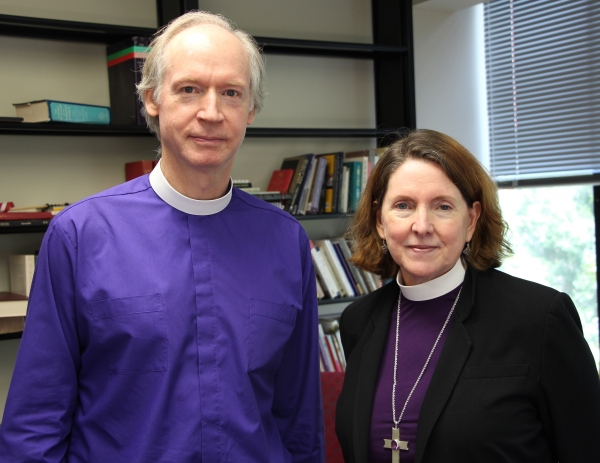Bishops Share Thoughts on Responsibilities of Clergy in Guiding Those in their Care about Preparing for Death

Dear Brothers and Sisters in Christ,
We realize that in these difficult times of physical separation and isolation from those in your spiritual care, a constant question is how you can be helpful to your parishioners. As we continue to adjust to an adapted way of life, there is another significant way in which you can assist and guide your beloved parishioners.
As the number of those infected with COVID-19 continues to grow in North Carolina, so does the number of deaths. We are asking all diocesan clergy to focus on their theological and canonical responsibilities around instructing those in our care about preparations in the event that death. These are teachings we should offer at all times, but they are even more pressing in our current medical crisis.
First, we would remind you of your canonical responsibilities about instructing people to prepare a will. Specifically, Canon 9, Sec. 6(b)(2)(iv) says: “It shall be the duty of Rectors and Priests-in-Charge to ensure that all persons in their charge are instructed concerning Christian stewardship, including: (iv) the responsibility of all persons to make a will as prescribed in the Book of Common Prayer.”
In addition to providing instruction about preparing one’s will, we should also remind those in our care to prepare a Health Care Power of Attorney (HCPOA) and Living Will, documents that give instructions about who is to make decisions for that person when he or she cannot do so for themselves, and guidance on what that person does or does not want in terms of life-sustaining care.
We also encourage you to remind your parishioners to find a means of assuring that their family knows where all important papers are kept (such as in a specified notebook, box or filing cabinet) so in the event of an unexpected death, the surviving family member can easily locate insurance papers, bank accounts, wills, HCPOA forms, etc.
All of this is not being morbid. It is just that in a time where death from a spreading and deadly virus seems to be front and center in our thoughts and prayers, we as Christian leaders should begin to instruct our flocks to do whatever they can to ensure their loved ones know their wishes for healthcare and how to find needed legal papers.
In the coming weeks, the Diocese will gather and add to our website materials that we feel will be helpful in making end-of-life decisions, and many of these materials will be specifically designed to assist the laity and will include sample forms and suggested details to consider. We assume many of your parishes may already have burial instruction forms, but we will publish the forms so they are available to parishioners across our diocese. Also to assist you in this work, and especially to reach folks without benefit of access to a member of the clergy, we asked the Rev. Miriam Saxon to assemble a team to prepare and offer a webinar series on planning for the end of life. We will send out details and dates soon, as we anticipate starting the series in early May.
Our purpose in writing this letter to the clergy is to remind you of your crucial role in assisting those in your care with the heart-wrenching issues that surround death and bereavement. And perhaps it goes without saying that each of you should follow these instructions for yourself and your own family, if you have not already done so.
If this letter raises any concerns for you, or if you feel you need more specific guidance for helping your parish with end-of-life issues or finding the documents we have referenced, please contact us or a member of the Congregational Support team, and we will provide any specific assistance you may need.
We will some day pass through these uncertain and painful times but in the meantime, we are grateful for the work you are doing to guide and comfort those in your pastoral care.
Yours faithfully,
+Sam Rodman
+Anne Hodges-Copple
Tags: Coronavirus Resources
 XII Bishop Diocesan of North Carolina
XII Bishop Diocesan of North Carolina
 Assistant Bishop
Assistant Bishop
